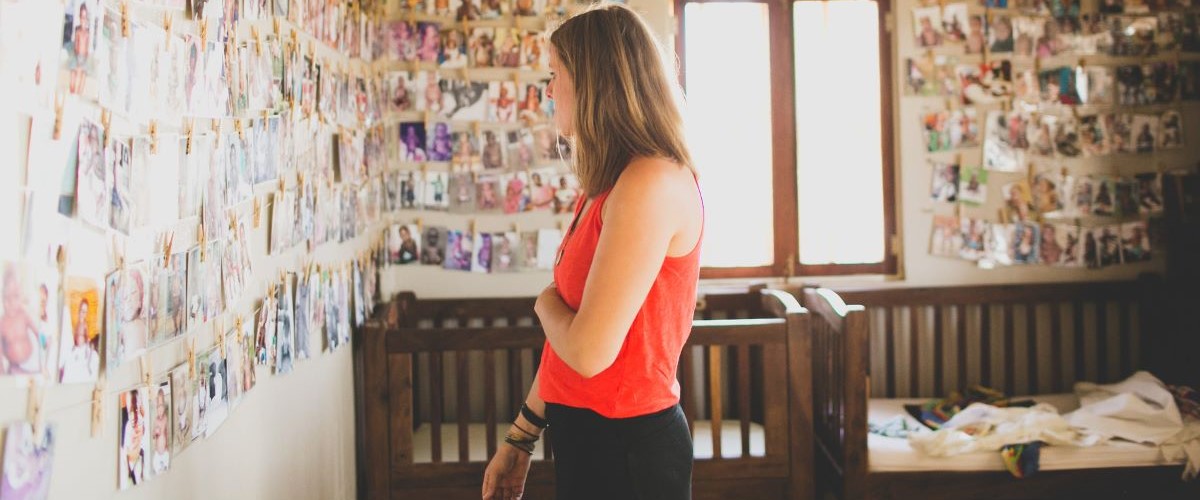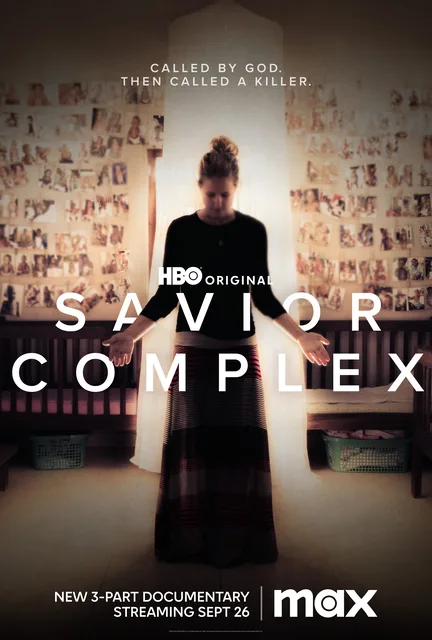Well-made and infuriating, HBO’s three-part documentary “Savior Complex” tells the story of Renee Bach, No White Saviors, and Serving His Children. It’s a fascinating melting pot of colonialism, charity, outrage, class, race, privilege, and naivete, but what really elevates it into a conversation starter is how much it refuses to provide easy answers. People who go in convinced that Bach is a hideous monster on the level of Hitler will likely find enough to justify maintaining that opinion; people who believe she has been a victim of activist hypocrisy masquerading as justice will probably continue to take that stance. “Savior Complex” is a remarkably detailed examination of this shocking case that answers most viewer questions as they arise by segueing back and forth from Bach’s story to the other people involved in this tale, intercut with sharp, revealing footage. And it never lets Bach off the hook, countering her claims with heartbreaking eyewitness testimony, showing how no one has the full picture here.
Renee Bach was just a teenager when she went on a missionary trip to Uganda, finding her purpose in Africa. After working at an orphanage, she decided to start her own charity in the district of Jinja, opening up a facility for malnourished children in an area of the world where nutrition and disease are constant concerns. She registered her new NGO (non-government organization) under the name of Serving His Children and hired a staff. Two things are undeniably true about what would happen next, despite conflicting viewpoints on motive and even moral & legal responsibility. 1.) Bach saved the lives of children in the area. Some mothers attest to that fact. 2.) Bach started performing medical procedures for which she was not qualified, even admitting she often used “gut feeling” instead of expertise. Over a hundred Ugandan children died, and the number is arguably much higher.
When an American registered nurse named Jackie Kramlich went to work at SHC, she was stunned by what she saw, including a lack of education and unsanitary conditions. In interview segments in “Savior Complex,” she gives compelling eyewitness accounts of Bach seemingly nonchalantly giving medicine injections and administering IV drips dangerously. Other employees accuse Bach of ignoring the advice and orders of qualified, educated Ugandan nurses and doctors. The thought that Bach dismissed a well-founded medical opinion because of a gut feeling that led to even one child’s death is unconscionable. The startling dynamic at SHC forced Kramlich to resign, but she felt further action was needed when an employee reported that the conditions were getting worse. That’s when No White Saviors got involved.
No White Saviors is an organization that directly compares missions like Bach’s to colonialism, the infiltration by people who think themselves superior to the one they’re helping and use that position to control them. Director Jackie Jesko doesn’t avoid the idea that Bach was a part of this vile ancient tactic, using her position as a powerful American white woman to bring her vision of God to the people of Uganda, no matter the human cost. And Jesko doesn’t hammer it as much as some other filmmakers might have. She very smartly allows Bach to reveal her own blinders at times, even including a scene in which Bach doesn’t know how to pronounce neocolonialism, a moment almost too good to be real in documentary terms. Jesko also hints at a really interesting idea regarding how young white women take power in missionary structures worldwide because they can do so more easily than in male-dominated American ones. Bach doesn’t seem to comprehend any underlying issues like this in her story, defending herself on purely human terms and frustratingly dismissing the systemic concerns at play.
“Savior Complex” gets even richer when one considers the flaws of No White Saviors, an organization with a vocal, outspoken leader who just happens to be a white American woman. Seriously. She jokes it away, but the idea that Kelsey Nielsen doesn’t understand that she too is kind of a white savior saving Ugandans from white saviors is amazing, especially as the organization continues to push for the literal prosecution of Bach, even when the story doesn’t line up exactly how they want it to. For example, a mother is interviewed for their case against Bach, but she considers the missionary an actual life-saver—instead of just going with the viewpoint of the woman whose child was actually saved, NWS uses images of her child on social media to further their cause in a grossly exploitative manner. And some of their social media campaigns cross the line into abuse, especially when they involve Bach’s adopted daughter.
Even the numbers in the Bach case can be hard to decipher. Bach and her team, including her mother, argue that 105 children died at SHC, with a mortality rate of 11%. Over the same period, the nearby children’s hospital had a mortality rate of 14%. However, these numbers simply can’t tell the whole story. If Bach had listened more than acted, could her number have been under 10%? If so, aren’t those lives valuable? However, if Bach hadn’t been there, could that number have been doubled?
It all becomes a battle of interpretation and perception that can inherently have no winners. Jesko and her team, including the great Roger Ross Williams as an executive producer, avoid the true crime docuseries clichés by allowing people to walk away from “Savior Complex” with a better understanding of the people involved but no clear answers on what happened or who, if anyone, is to blame. Bach would argue that being forced out of the country by No White Saviors cost lives because there was no one there to help the malnourished children of the region who couldn’t get to a hospital. It’s probably true. And yet Bach’s brand of righteous privilege is obviously extremely dangerous. Also true.
The opening episode of Jesko’s series includes a oft-repeated quote: “God doesn’t call the qualified, he qualifies the called.” Despite the balance that makes it so rich, “Savior Complex” ultimately makes very clear the danger inherent in this belief, one that justifies drastic, life-changing things like medical intervention under the banner of being called by God. It’s a complicated blend of so many interesting and competing ideas, a docuseries worth watching, especially for any organization even considering getting involved in a society other than their own.
Whole series was screened for review. “Savior Complex” premieres on HBO tonight, with two more episodes airing tomorrow, all available on Max this evening.




















